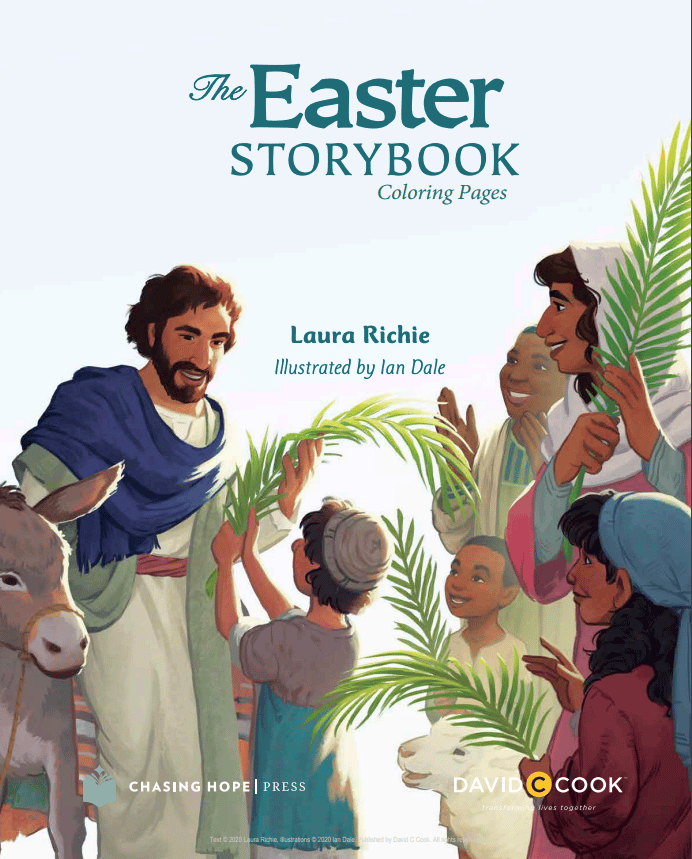Throughout my childhood, everyone in my family would give something up for Lent. It wasn’t until I was a young adult that I reflected on the actual purpose of Lent. I decided that instead of giving something up, I was going to try adding something in.
Is there a right way to observe Lent? How do you decide what is best for you and your family? This is a personal decision. And in order to make that decision, we need to first understand the purpose behind Lent.
What Is Lent?
In the second century, the early church began the practice of fasting for two to three days in preparation for the magnitude and significance of what Easter represents. The fast included one meal in the evening. There were strict rules against eating flesh-meat and fish—some practices forbid eggs as well. In the fourth century, the days of fasting increased to 40 (excluding Sundays).
Although Lent is not found in Scripture, the 40 days was likely instituted in parallel to Jesus’ 40 days of fasting in the desert before He began His earthly ministry (Matt. 4:1-2). Still today, many observe Lent beginning on Ash Wednesday and concluding on Easter Sunday. Some practice Lent as abstaining from festivities, giving attention to the poor, or even devoting oneself to more religious exercises.
Lent, as part of the Liturgical calendar, offers Christians a time of preparation through reflection. It also creates space for us to recognize the magnitude of Easter.

Giving Something Up for Lent
Prior to children’s church each Sunday morning, we gather our leaders to share relevant announcements, collaborate at grade levels, and pray with one another. One particular Sunday, I led a devotional about the importance of Lent. In it, I boastfully shared my success at giving up social media for Lent.
I was quickly humbled when one of our leaders asked, “Have you filled that time you would have been on social media with time with God?”
I’m not quite sure what jumbled words followed but the short answer was, “No.”
Are there things in your life that are more important than God?
My entire life I had given up something for Lent. But if I’m honest, I had no idea why other than that’s just what my parents told me we do. When I took a step back and reflected on the question I was asked by this particular leader, I realized I had gone about Lent all wrong.
In 2016, I gave up cheese for Lent. That lasted maybe a week. Other years I have given up behaviors that are not of God (i.e., honoring God through my words by not swearing). At the end of the day, it is not about a behavior or a food item. Lent is about connecting more deeply in relationship with our Creator.
Are there things in your life that are more important than God? Spend time talking with God and asking the Holy Spirit to reveal the things in your life that take priority over His will and purposes.
Adding Something In for Lent
After being humbled in front of the leaders I was leading, I decided to try something different by adding something in instead of giving something up. So I decided to reframe the question the question I had been asking to ask if there were opportunities to slow down and refocus my time intentionally on my relationship with God.
There are so many ways to practice this. This may look like taking a walk each morning while listening to a guided time of prayer (Lectio 365 and Pray As You Go are two contemplative prayer apps). It might be watching the “Verse of the Day story” in the YouVersion Bible App. Maybe you find a devotional (i.e., A Just Passion: A Six-Week Lenten Journey). Some of you may look at gathering a group of people together weekly to pray with one another. Others might find it helpful to begin speaking God’s truth aloud through a blessing over your children at night. Or maybe there is something else.
During the Advent season, my husband and I gathered our kids together each Sunday evening for a family devotional. We used computer paper to staple together booklets and wrote on the outside “My Advent Book.”
Throughout the five weeks, we unpacked The Story of God using Jennie Allen’s five book series: The Beginning, The Fall, Christ, The Holy Spirit and the Church, and Heaven. We lit a candle, invited the Holy Spirit into our time, read one book each week, and each drew a picture or wrote words that helped summarize what we learned about who God is or what stood out to us as significant.
Lent, as part of the Liturgical calendar, offers Christians a time of preparation through reflection. It also creates space for us to recognize the magnitude of Easter.
We ended by allowing everyone to share what they drew in their booklets and why.
God Is Not Limited
All things in life perish—material possessions, finances, even people. When we put our whole selves into things of this world, and they’re gone, we have nothing left. God is not limited to the things of this world. Lent is an opportunity to refocus on our relationship with God.
As mentioned above, it is not just about giving something up or adding something in for the sake of following this practice. But the opportunity Lent provides allows us to refocus our attention where it should be in the first place.
Whether you give something up or add something in, tell someone. Christian community doesn’t exist in silo. Find someone who can hold you accountable, pray with you, and converse with what you are learning about yourself and God through the practice of Lent.
More Articles You May Like
- Ash Wednesday: How to Participate with Kids
- Why Ash Wednesday Is So Powerful: The Bad and The Good News
- 13 Easter-Friendly Articles for Ministry Now
- 40 Stories about Jesus That Will Be Your New Easter Tradition
- Crucifixion of Jesus (Elementary Lesson)
- Jesus’ Resurrection (Elementary Lesson)
- Wonder Ink: Created New Easter Series

The Easter Storybook Coloring Pages

The Easter Storybook Coloring Pages













